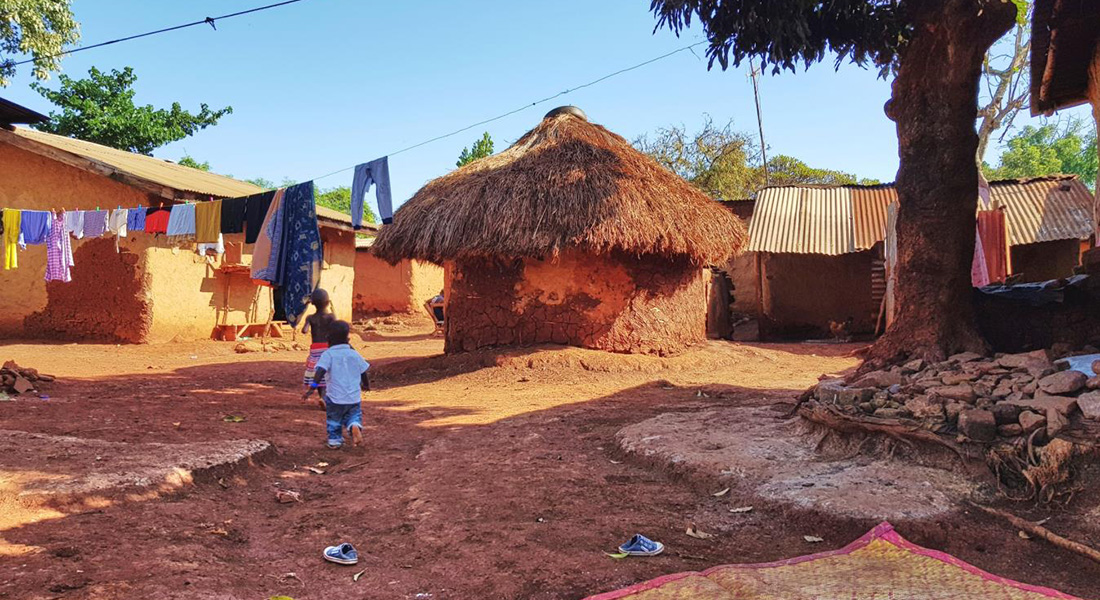PhD defence: The gut in childhood stunting: a randomised controlled trial in Uganda

Hannah Pesu
PhD thesis
Despite best efforts to reduce the global burden of stunting, more than 149 million children under five years are affected. Stunting, or having a height-for-age that is more than two standard deviations below the reference median is associated with impaired physical and cognitive development and later chronic disease risk.
Environmental enteric dysfunction (EED), a state of chronic inflammation of the small intestinal mucosa, is thought to play a role. EED is widespread among children living in settings where basic water, sanitation and hygiene (WASH) are lacking and is thought to be driven by pathogen burden in combination with unmet nutrient requirements.
Biomarkers are being explored to explain the functional implications of EED in stunting. The main objective of this PhD thesis was to explore EED using selected biomarkers and investigate the interaction between nutrition intervention and EED in children with stunting.
This thesis is based on data from the MAGNUS trial. A community based 2x2 factorial trial among stunted children aged 12-59 months in Eastern Uganda. Children were randomised to large-quantity lipid-based nutrient supplements (LNS) containing milk protein (MP) and/or whey permeate (WP) or to no supplementation for 12 weeks.
Correlates of plasma citrulline (p-cit), a marker of enterocyte mass and a candidate marker of EED were explored as well as the effects of the LNS on markers of EED; p-cit and faecal myeloperoxidase (f-MPO), a marker of intestinal inflammation. Finally, the state of the gut was explored as a modifier of the LNS effect on growth and micronutrient status.
Many of the factors that correlated with p-cit would be expected in environments of EED. These findings underscore that large quantity LNS interventions are insufficient in themselves to improve EED. Moreover, the beneficial effect of the nutrition intervention on B12 status seemed to be reduced in those with low enterocyte mass at baseline.
Perhaps the effectiveness of nutrition interventions would be improved if delivered together with transformative WASH interventions that sustainably reduce the pathogen burden and allow for adequate mucosal repair.
Download Included papers; Summary; Resumé (Summary in Danish); Table of contents.
Time
1 June 2023, 13:00
Place
A2-70.03, Thorvaldsensvej 40, Frederiksberg.
Opponents
Associate Professor Alexandr Parlesak (chair), Department of Nutrition, Exercise and Sports, University of Copenhagen, Denmark.
Chief Physician Bente Utoft Andreassen, Clinic for paediatrics and adolescent medicine - Stomach and Intestinal Diseases, Rigshospitalet, Copenhagen, Denmark.
Professor Tsinuel Girma, Director for the Harvard T.H. Chan School of Public Health Fenot Project, Jimma University, Ethiopia.
Main supervisor
Professor Henrik Friis, Department of Nutrition, Exercise, and Sports, Faculty of Science, University of Copenhagen, Denmark.
Co-supervisors
Associate Professor Benedikte Grenov, Department of Nutrition, Exercise and Sports, University of Copenhagen, Denmark.
The thesis is available for inspection at the library, Nørre Allé 51, DK-2200 Copenhagen N.
